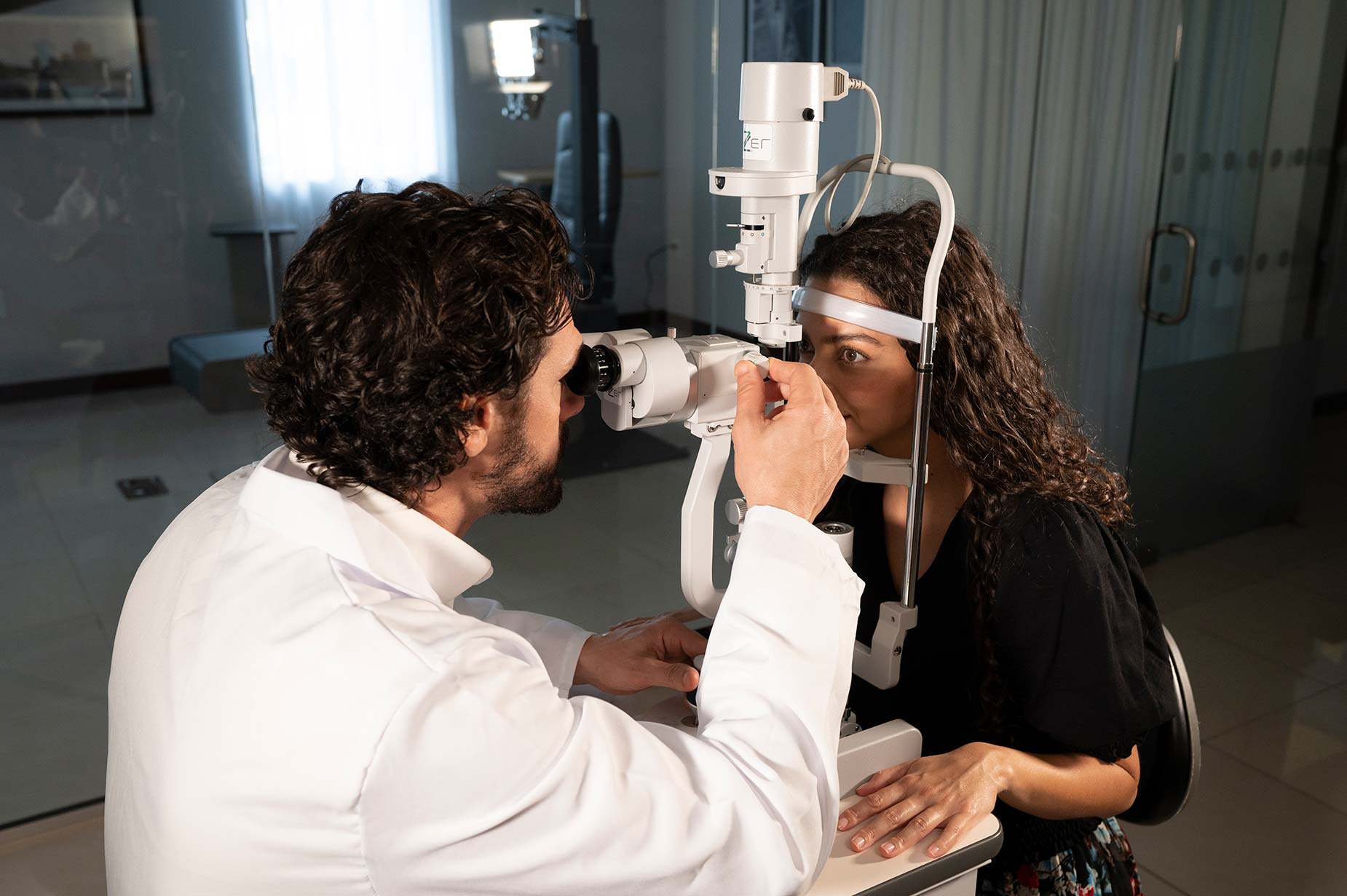Although there are several reasons that prompt us to take care of and be aware of the vulnerability of our eyes, few pay attention to their importance and implications. Firstly, it is worth noting that 85% of the information received by our brain comes from our retinas. Therefore, our eyes play a fundamental role in our body and our lives.
However, at USO (US Ophthalmic), we understand that it is common for people to overlook the attention our eye health requires, as evidenced by the II Eye Well-Being Barometer. This barometer, based on a survey of a large number of people, was presented in October.
To improve this situation, our experts encourage you to familiarize yourself with the 12 resolutions for maintaining good eye health through simple routines that can help prevent various eye conditions.

12 resolutions to take care of our vision during 2023
-
Maintain a healthy lifestyle: Lead a healthy lifestyle by getting enough rest, quitting tobacco, and moderating or avoiding alcohol consumption.
-
Pay attention to nutrition: Opt for a diet rich in foods high in vitamins A and C, which are beneficial for vision. This can help prevent diseases and strengthen your eyesight.
-
Engage in physical exercise: Regular physical exercise can help prevent conditions like diabetes and hypertension, which can have implications for your eyesight. It also contributes to adequate oxygenation of the eyes.
-
Use appropriate eyewear: Correct your nearsightedness, farsightedness, or astigmatism by wearing the right prescription glasses or contact lenses. Regular eye examinations are recommended at least once a year.
-
Maintain hygiene and proper lens care: If you use contact lenses, ensure they are stored in a case and cleaned regularly to avoid vision problems or discomfort, such as headaches. Proper maintenance and hygiene are essential.
-
Limit screen usage: When using screens, consciously blink and lubricate your eyes to prevent dryness. Follow the 20-20-20 rule: take a 20-second break every 20 minutes to look at something 20 feet away.
-
Protect your eyes from the sun: Wear sunglasses with UV protection, even during seasons other than summer, to safeguard your eyes from harmful ultraviolet radiation.
-
Consult a specialist: Seek urgent medical attention if you experience any ocular symptoms such as vision loss, flashes, blurred vision, or eye pain.
-
Use eye protection: Use protective eyewear during activities that require special attention, such as sports or certain work or DIY projects.
-
Know your family history: Pay attention to any family history of visual pathologies like glaucoma, cataracts, or corneal dystrophies, as they may have a genetic component.
-
Ensure good lighting: Maintain adequate lighting to avoid straining your eyes and prevent eye fatigue, especially when working in an office or reading/studying.
-
Consult experts and get regular eye exams: Seek advice from eye care professionals if you have any concerns. It is recommended to have annual eye exams, starting from the age of 3, to detect any potential eye conditions early. Early treatment can help prevent future complications.
Tips to take care of your eyesight when using electronic screens
To conclude, it is important to dedicate a section to eye care when using electronic screens. With the rise of remote work driven by the Covid-19 pandemic, our eyes have transitioned from occasional use of computers and cell phones to nearly constant exposure to digital devices.
In this regard, it is crucial to be mindful of taking special care of our vision.
Fortunately, the recommendations are clear and easy to implement. Among them, it is important to remember to blink regularly, choose appropriate contrast settings, ensure optimal lighting for the screen, and use an adequate font size.
Another key aspect is maintaining proper eye lubrication, especially for individuals who wear contact lenses, as they may be more susceptible to conditions like blepharitis or dry eye. Insufficient lubrication can lead to poor visual quality.
Electronic devices shouldn't be a problem
This should not be the case, but unfortunately, it happens. The same applies to reading from electronic screens compared to traditional paper books. It is widely known that reading from a smartphone is not the same as reading from a printed page.
Electronic screens do have certain advantages, such as the ability to adjust font size and contrast, which can be beneficial for vision. Moreover, devices with backlights can be used in low ambient light conditions.
However, there are certain conditions that are ideal for reading on electronic devices without straining your eyes. It is important to maintain a distance of approximately 30 centimeters from the device, and it should always be positioned below eye level.
Importance of proper lighting
Regarding lighting, it is crucial to emphasize the importance of having appropriate focal and ambient lighting. Spot lighting can be beneficial for individuals who choose to read on electronic screens. The lighting should be warm, optically corrected for reading if necessary, and provide good binocular balance.
Maintain adequate eye lubrication
Insufficient lubrication can lead to vision problems, so it is important to ensure good lubrication levels. When reading on electronic devices, it is necessary to maintain the same blinking frequency as when not reading. Proper blinking helps keep the surface of the eye well lubricated, preventing redness, the sensation of foreign objects, or grittiness, which can cause eye discomfort.
Avoid reading in unfavorable environments
It is essential to avoid reading in environments that may be harmful to eye health, such as windy areas, dry environments, or places with tobacco smoke or industrial fumes.
Beware of excessive use

Statistically, around 70% of people who use electronic screens may experience eye fatigue, which occurs with excessive device usage. With proper care, these issues can be avoided. Currently, the amount of time spent in front of electronic devices (computer, mobile phone, tablet, etc.) varies depending on age and occupation. While we recommend a maximum of two hours of use, some individuals, especially those under 30 years of age, spend up to ten hours, which is detrimental to eye health.
We are not suggesting that the use of electronic devices should be completely avoided, but necessary precautions should be taken to mitigate the consequences of excessive use. The sense of sight is highly important to individuals.
Spending prolonged hours in front of electronic screens can lead to problems such as visual fatigue, blurred vision, double vision, eyelid pain, or severe headaches.




